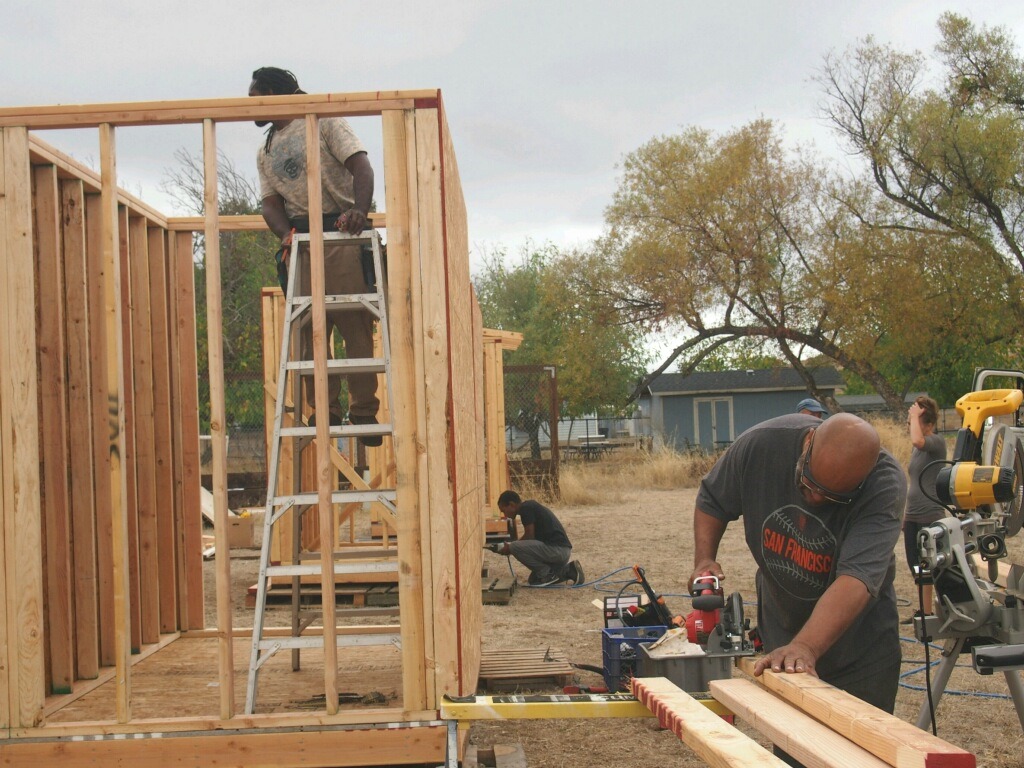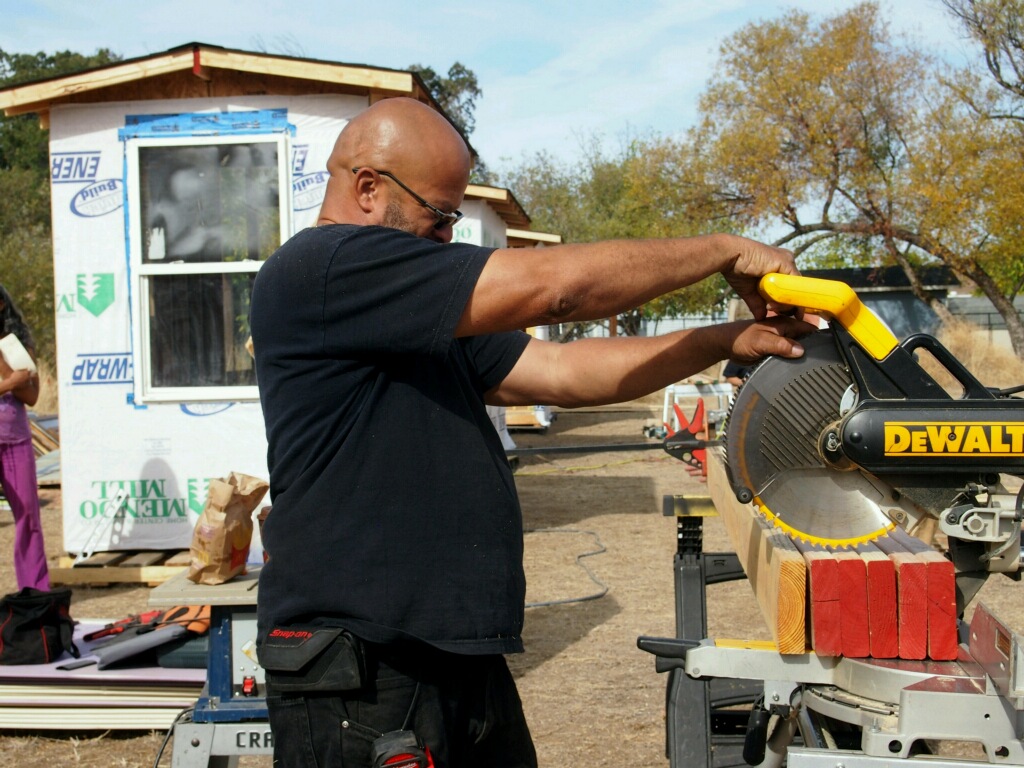Rick Walker was exonerated in 2003 after serving 12 years for a murder he didn’t commit. Since his exoneration, he has reconstructed his life by building cars, tiny homes, and a reputation as a humanitarian through his efforts to improve other people’s lives.
By Audrey Redmond
When exoneree and NCIP board member Rick Walker entered his favorite burger joint in Clear Lake last summer, he had no idea he’d be getting much more than a burger.
“I saw a girl I knew who works there, we got to talking, and conversation turned to the homeless problem in Lake County, which is the poorest county in California.” Walker explained. “She mentioned that she’d attended a meeting of townspeople talking about building tiny homes to help people in need. She remembered I was a builder, and she said they could really use my help.”

Rick Walker (right) and several dedicated volunteers begin work on the the first tiny homes. Photo provided by Rick Walker
Knowing winter was soon coming and people without shelter would be facing frigid weather, Walker readily agreed. He soon found himself at a local pizza parlor meeting with 15 other volunteers about building one or more villages of small, inexpensive homes to help people who find themselves unhoused. They promptly built their first model unit.
Then a catastrophic wildfire raged through Lake County in September 2016, destroying hundreds of homes.
The group of volunteers, which had formed into a nonprofit named Cornerstone Village, knew even more Lake County residents were now without shelter. They resumed – with renewed dedication and energy – their plan to build tiny homes.
They quickly banded together and in October 2016 began holding “build parties,” with Walker and his cousin Michael Black among those leading the construction.
“That first weekend we built two units,” declared Walker. “We proved that with five crews we can build 10 in one weekend. Now we need to secure a permanent site for a village of about 30 homes.” He explained that the village would include shared common areas for bath, kitchen and laundry facilities.

Rick Walker spearheads volunteer efforts to construct the first of many tiny homes. Photo provided by Rick Walker
Passionate about giving disadvantaged people a foundation to move ahead with their lives, Walker supports Cornerstone Village’s vision to create a community in which people can live in a safe place, receive job and educational training, and get access to employment assistance.
“Homelessness is a serious problem, and tiny homes are a serious solution,” Walker said. “I own a house in Lake County, and I’d like to help other people experience the quality of life I experience.”
In addition to this important work, Walker has rebuilt his life by devoting himself to supporting other exonerees, often serving as a mentor and friend from the minute they walk free. He plays a vital role on NCIP’s advisory board, provides valuable perspective to NCIP staff, and has spoken at the Innocence Network conference on issues supporting exoneree needs.
NCIP salutes Rick Walker – through nearly 13 years of wrongful incarceration he never lost hope, and he now gives people hope and ways to rebuild their own lives.